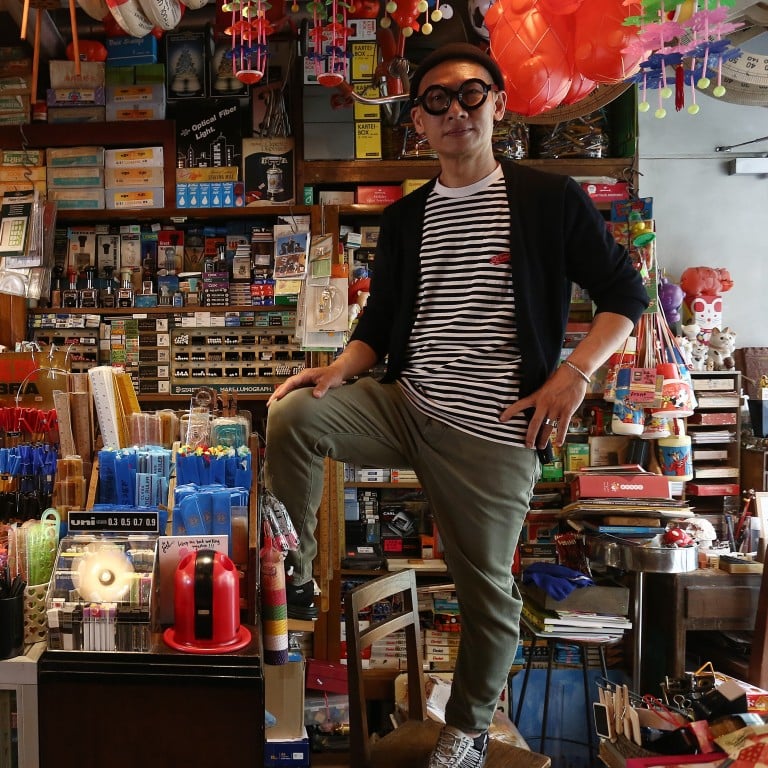
Fearless at the worst of times: Hong Kong businessmen expand, start new ventures despite stalled economy
- Construction boss who blew the whistle in MTR scandal switches to making masks
- Second-hand furniture dealer expands, stationery enthusiast opens cafe-museum
Construction company boss Jason Poon Chuk-hung found himself frozen out of business deals after he blew the whistle on a scandal at Hong Kong’s costliest rail project two years ago.
But he was beaming earlier this month at his new factory, ready to churn out 32 million face masks a month and help meet a worldwide shortage amid the Covid-19 pandemic.
“Nobody can beat me down,” he said. “I’ll show my backbiters.”
The 50-year-old is among the entrepreneurs proving resilient at the worst of times, as the coronavirus has piled economic woes onto the damage done by the anti-government protests that swept through the city last year.
While other businesses have folded, second-hand furniture dealer Richard Bowsie, 44, opened his second warehouse, and stationery enthusiast Joel Chung Yin-chai, 55, splashed more than HK$3 million (US$387,000) on a new cafe-cum-museum in Mong Kok.
Hongkongers should remain confident and rise up to challenges. This is the real Hong Kong spirit
A thorn in the side of the government and the railway operator, the MTR Corporation, he soon found himself without an income and a mountain of wage claims.
“I was among the most miserable people in Hong Kong,” he said. “I had no work. The government and the MTR both boycotted me and nobody was willing to give me a contract. I also faced bad debts and hundreds of wage claims. The pressure was unimaginable.”
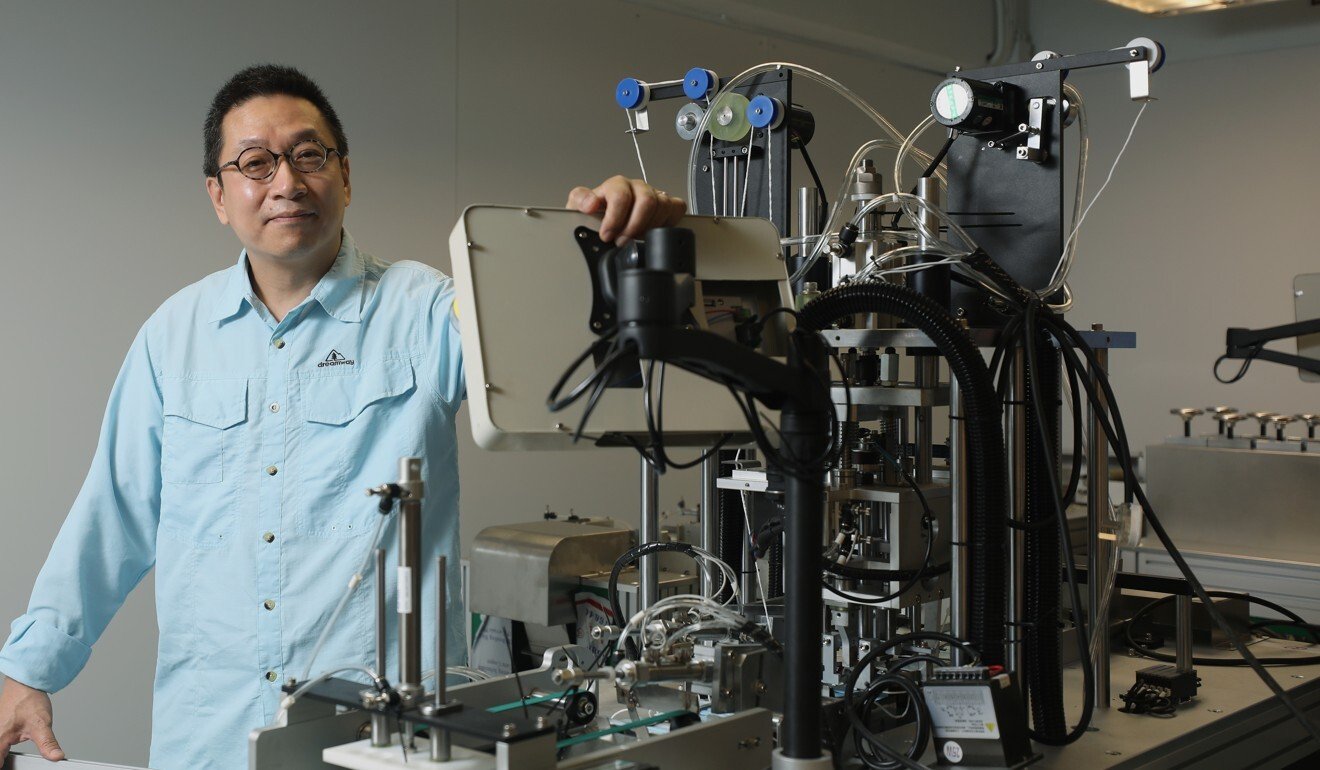
Poon said he used HK$35 million of his own money to pay his workers, and had yet to receive payments he said he was owed by Leighton, the rail project’s main contractor.
He downsized his company, shrinking his workforce from 700 employees to about 20, and remortgaged his properties worth more than HK$80 million to stay afloat.
Without opportunities in Hong Kong, Poon started projects in Taiwan, Cambodia, and the Philippines last year, and earned enough to get by, but by late January this year those ventures were slowing down.
When the pandemic hit, he was quick to see an opportunity in the worldwide shortage of masks, and struck a deal to manufacture 3.5 million masks a month in Turkey, quickly making a profit of millions.
In March, however, concerned about a possible lockdown in Turkey, and with orders for 25 million masks in hand, he decided to set up his own production lines in Hong Kong.
“The orders I’d acquired guaranteed a profit,” he said.
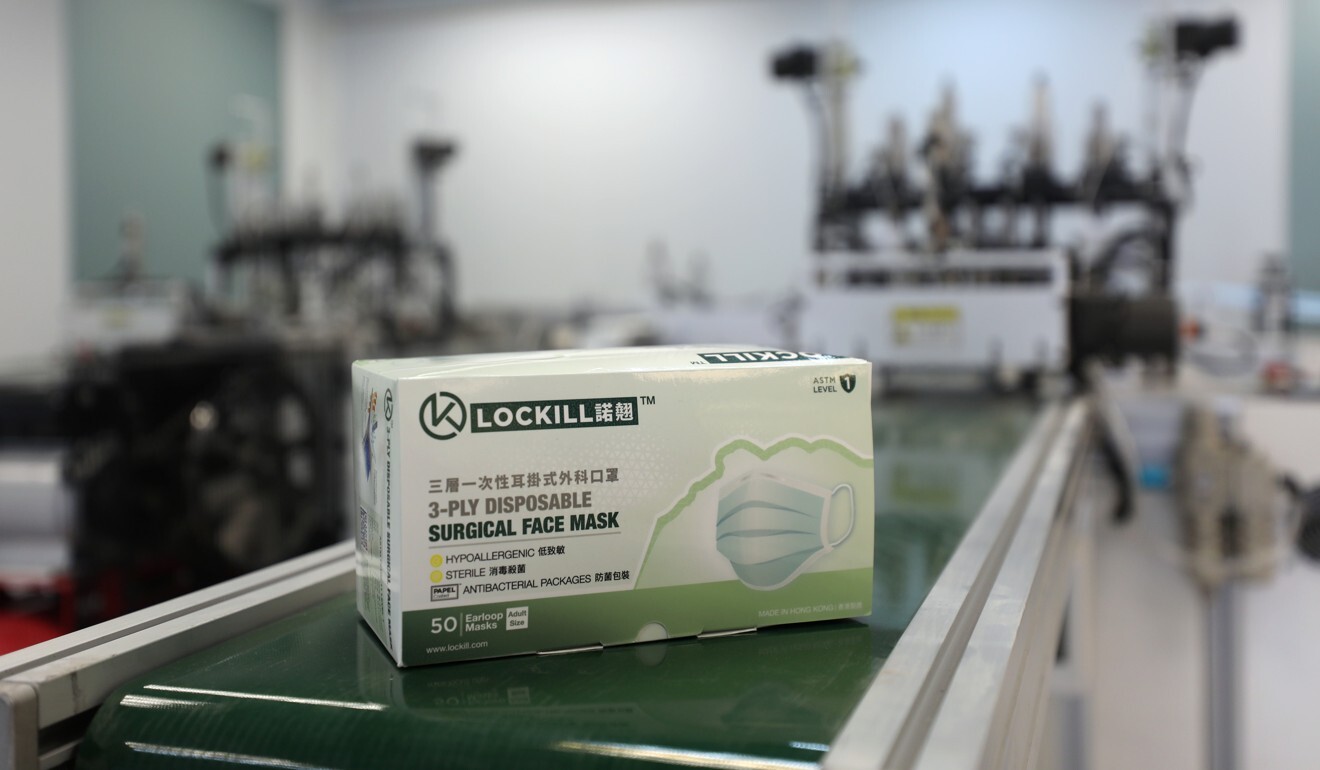
He settled in at a 10,000 sq ft site in a Lai Chi Kok industrial building, with the landlord and a pro-democracy youth group as his partners.
From late April, its eight production lines will be able to churn out up to 32 million surgical masks and 3 million reusable masks per month.
Looking back, he said: “The expose over the Sha Tin-Central link saga caused me a great deal of trouble. I never regretted it, nor did I feel despondent.
Hong Kong’s been through many difficulties ... It always comes back bigger and better
“Hongkongers should remain confident and rise up to challenges. This is the real Hong Kong spirit.”
Over in Chai Wan, a new warehouse of second-hand furniture store 2nd Chance opened on April 14, and owner Bowsie is keenly aware he is bucking the trend of business closures.
In fact, the company’s original 12,000 sq ft showroom in Tuen Mun saw business plummet by about 80 per cent from the double blow of the social unrest and the coronavirus.
Hong Kong developers scale back project launches amid pandemic
The high-end furniture firm he founded in 2006 with his wife, Mavis Lui, saw its best days in 2014 and 2015, when it raked in an annual profit of more than HK$3 million.
“Last year we suffered a massive loss of business, definitely the most difficult year for us,” he said. “The unrest seriously impacted us – our clients were unable to visit us and our delivery service was disrupted with many roads, tunnels and highways blocked or closed.”
With a monthly rent of about HK$90,000 for the premises, the couple found themselves depleting their savings to keep the business going.
Bowsie, who is from Northern Ireland, recalled thinking in February that it seemed too much of a struggle to keep going.
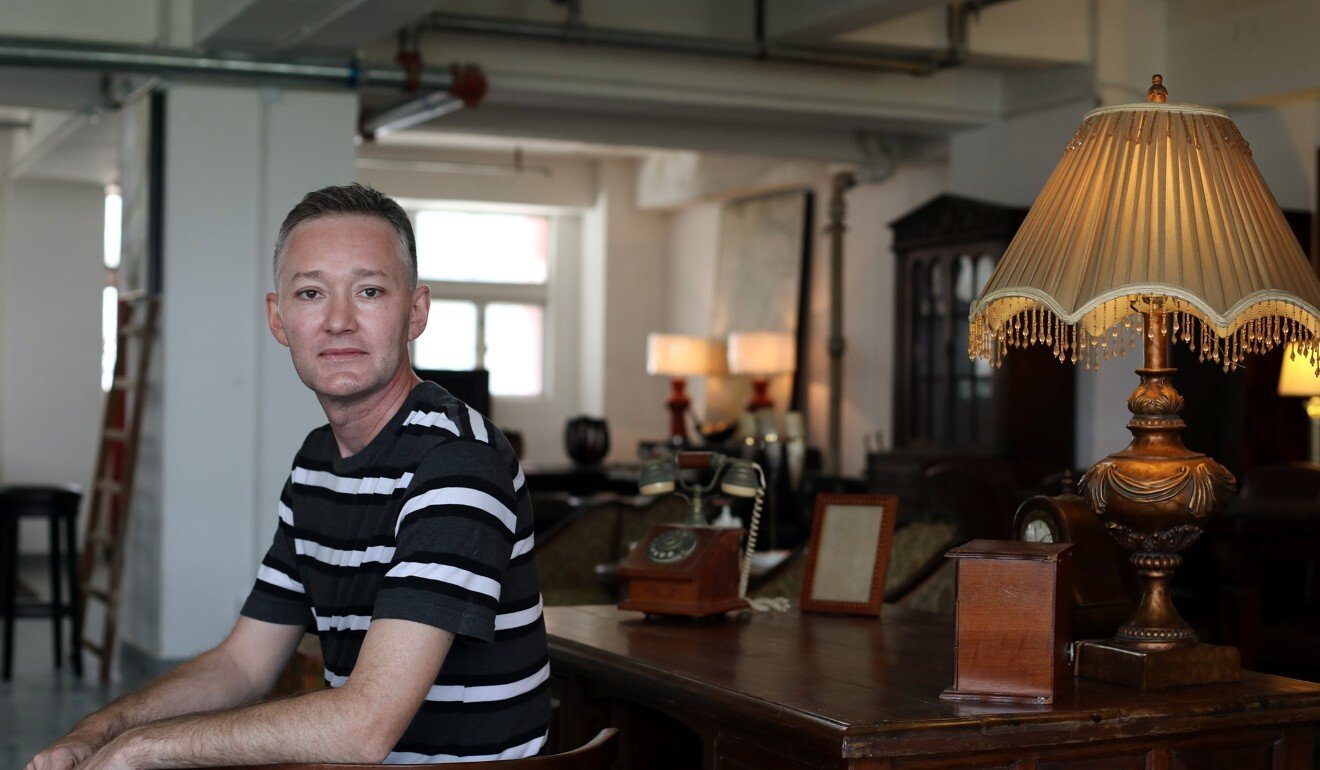
At that critical point, Simon Tyrrell, CEO of storage firm Redbox Storage, offered him a 5,000 sq ft unit at a Chai Wan industrial building to use almost rent-free as a second storeroom for nine months.
It was a form of partnership to cross-promote each other’s businesses, with Bowsie referring furniture buyers to use RedBox’s storage services at a special rate, and Tyrrell telling his clients they could sell unwanted items to 2nd Chance.
The collaboration let 2nd Chance attract customers living on Hong Kong Island, while RedBox diversified from storing art, wine, clothing and cars, to include smaller items such as luggage.
“Together, we’re better off,” Tyrrell said.
Both businessmen were optimistic about their partnership as well as the future of the city.
“Hong Kong’s been through many difficulties,” Bowsie said. “It always comes back bigger and better.”
In Mong Kok, stationery enthusiast Chung opened his Silver Cafe at the worst of times, but is also hoping for the best.
The founder of the Bank of Stationery, which collects and distributes pencils and other writing tools to underprivileged children, took a leap of faith to open his business after the Urban Renewal Authority offered him a 6,000 sq ft space, including a large garden, at a low rent.
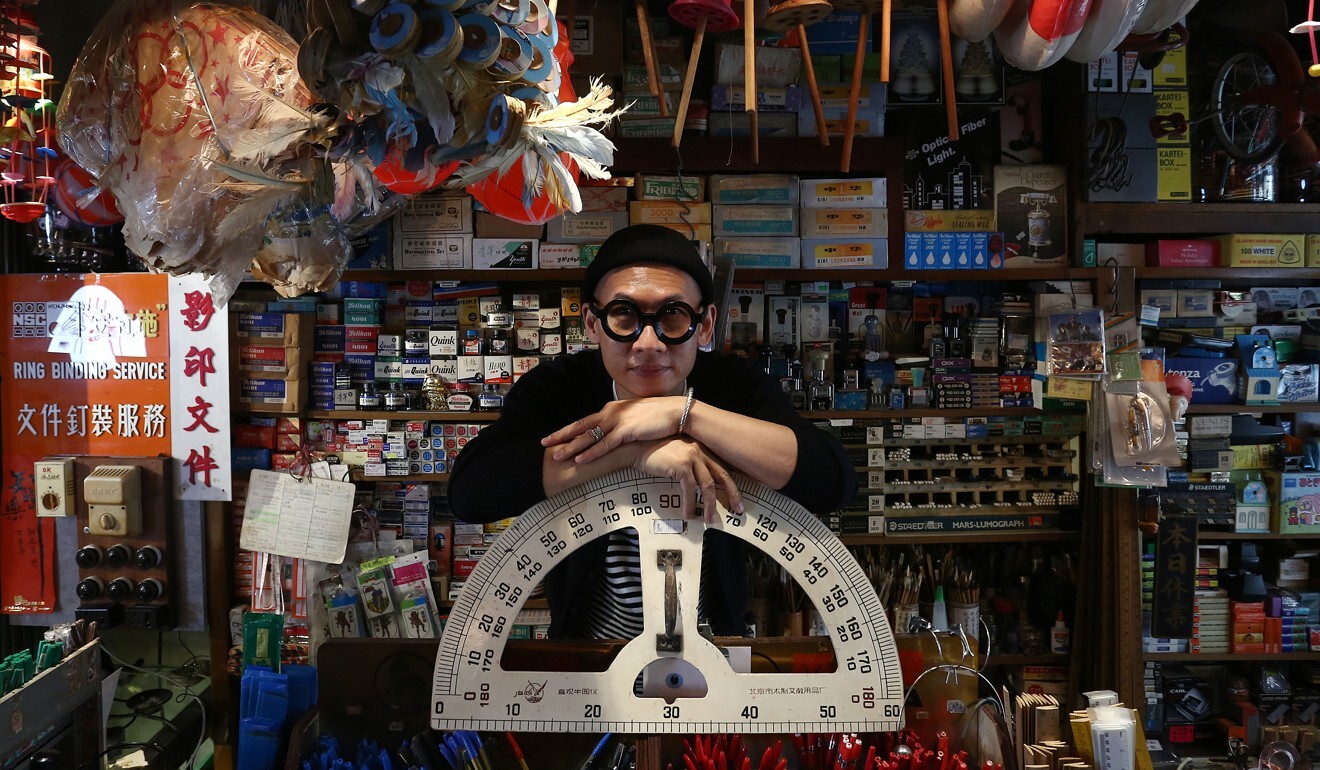
This was after 40 per cent of the tenants backed out of the restoration project, named 618 Shanghai Street, because of the social unrest last year.
“The exodus created a golden opportunity for me – cheap rent for an excellent venue,” said Chung, who hoped his venture would sustain his stationery museum and be a platform for cultural and educational activities.
Hong Kong’s business sector puts its efforts into the fight against pandemic
Optimistic despite opening amid the coronavirus pandemic, he said: “It’s like riding a roller coaster. We start at the worst time, but the good thing is, we have already hit the bottom. It will only get better day by day.”
He hired about 10 workers for the cafe, which opened on April 12 with its display of 10,000 stationery items ranging from fountain pens, glass paper lanterns, and piggy banks, to old typewriters and drawing tools.
So far, the feedback from customers has been encouraging.
“Many people have told me how deeply touched they were to see these classic stationery items. For me, this is already rewarding,” he said.

